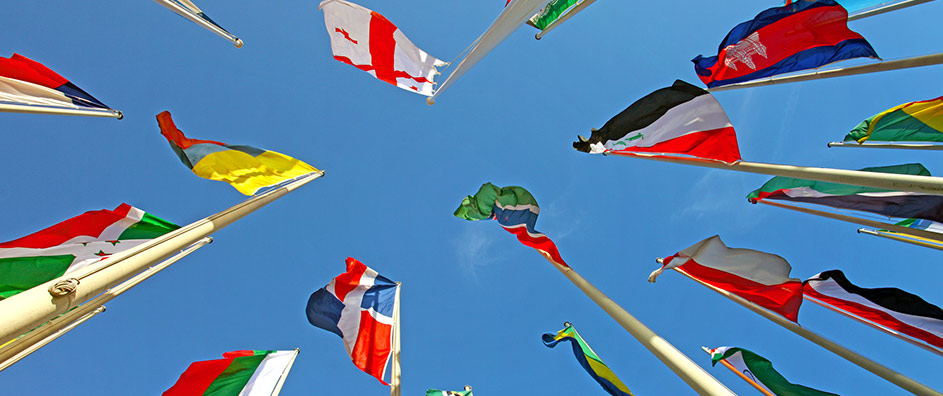The principle of the equality of nations, irrespective of their size, has long been a cornerstone of Bahá’í teachings. This doctrine not only underscores the inherent dignity of all nations but also emphasizes the imperative of universal participation in global discourses. Amidst an increasingly polarized world, the call for equality resonates with profound significance, inviting reflection on the delicate interplay between power, perception, and partnership in international relations.
At the core of this teaching lies the assertion that no nation, regardless of its geographic expanse or economic robustness, should dominate or establish hierarchies over others. Such a stance is not merely an idealistic aspiration; it is a pragmatic acknowledgment of the complexities inherent in global interactions. The historical context of international relations is replete with instances where larger nations exerted undue influence over smaller ones, often leading to a cascade of socio-economic ramifications that undermined the stability and development of the latter. This inequity raises pressing questions about sovereignty, justice, and the ethical responsibilities of more powerful nations.
The Bahá’í perspective promotes a paradigm where nations cooperate as equals, each contributing uniquely to the collective advancement of humanity. This is not to suggest that all nations are identical in capacity or resources; rather, it is an appeal for mutual respect and recognition of the potential and contributions that each nation can make. The flourishing of smaller nations, when encouraged through equal voice and representation, can lead to a more balanced and diverse global community. The diversity of thought and experience from various nations serves to enrich international dialogues, fostering innovative solutions to common challenges.
In observing the contemporary landscape of global politics, one can identify the residual strain of colonial legacies, where the asymmetrical interdependence between nations continues to perpetuate disparities. This can lead to a form of systemic injustice, where the voices from smaller or developing nations are often marginalized during critical decision-making processes. The principles of equality, as articulated within Bahá’í teachings, are inherently revolutionary, prompting transformation by advocating for those who have historically been overshadowed. By amplifying underrepresented voices, the international community stands to benefit from a fuller spectrum of insights and strategies.
Understanding the economic foundation of nationalism is essential. Historically, the size and power of a nation have often been equated with its economic prowess. Large nations tend to wield considerable influence in global markets, thus engendering fear and envy among smaller counterparts. However, this relationship is fraught with complexity. Economic dominance often engenders a skewed power dynamic, where smaller nations feel pressured to conform to the interests of larger states. Bahá’í teachings, therefore, challenge this predilection towards economic determinism by advocating for equity in economic relationships, which can facilitate fair trade practices, equitable resource sharing, and ultimately, a more harmonious coexistence among nations.
The Bahá’í approach also introduces the concept of collective security, arising from the notion that true security is achieved not merely through military might but through collaborative efforts and mutual respect among nations. When nations operate from a framework of equality, conflicts can be negotiated through dialogue rather than through force. This principle is undergirded by the belief that peace is a collective endeavor, where each nation’s voice contributes to the symphony of global governance.
Furthermore, the equality of nations intersects with the urgency of addressing pressing global issues such as climate change, health crises, and migration. These challenges necessitate an inclusive approach whereby all nations, irrespective of their size or resources, are allowed to voice concerns and propose solutions. The interconnectivity of contemporary society underscores that the problems faced by one nation can reverberate across the globe. Acknowledging the contributions of smaller nations in tackling these challenges ensures a robust and comprehensive approach, promoting innovation and resilience.
In essence, the Bahá’í teachings regarding the equality of nations implore the global community to acknowledge and embrace the idea that all nations, large and small, possess valuable insights and capabilities. This is pivotal not just for survival but for flourishing collectively. The journey towards equality invites nations to step away from historical paradigms of domination and instead to embrace genuine partnership, where each entity is recognized as a contributor to the global narrative. As the tapestry of human existence continues to evolve, this foundational principle could be the keystone upon which a more balanced, equitable, and harmonious world is constructed.
Ultimately, those who adopt the Bahá’í view foster not only a more profound appreciation for diverse national identities but also a commitment to collaborative advancement. The advocacy of equality among nations is emblematic of a larger ethos that champions unity, peace, and justice, galvanizing efforts that can lead to the unprecedented amalgamation of the global community. Thus, the call resonates ever more poignantly: every nation has a voice, and every voice matters.
